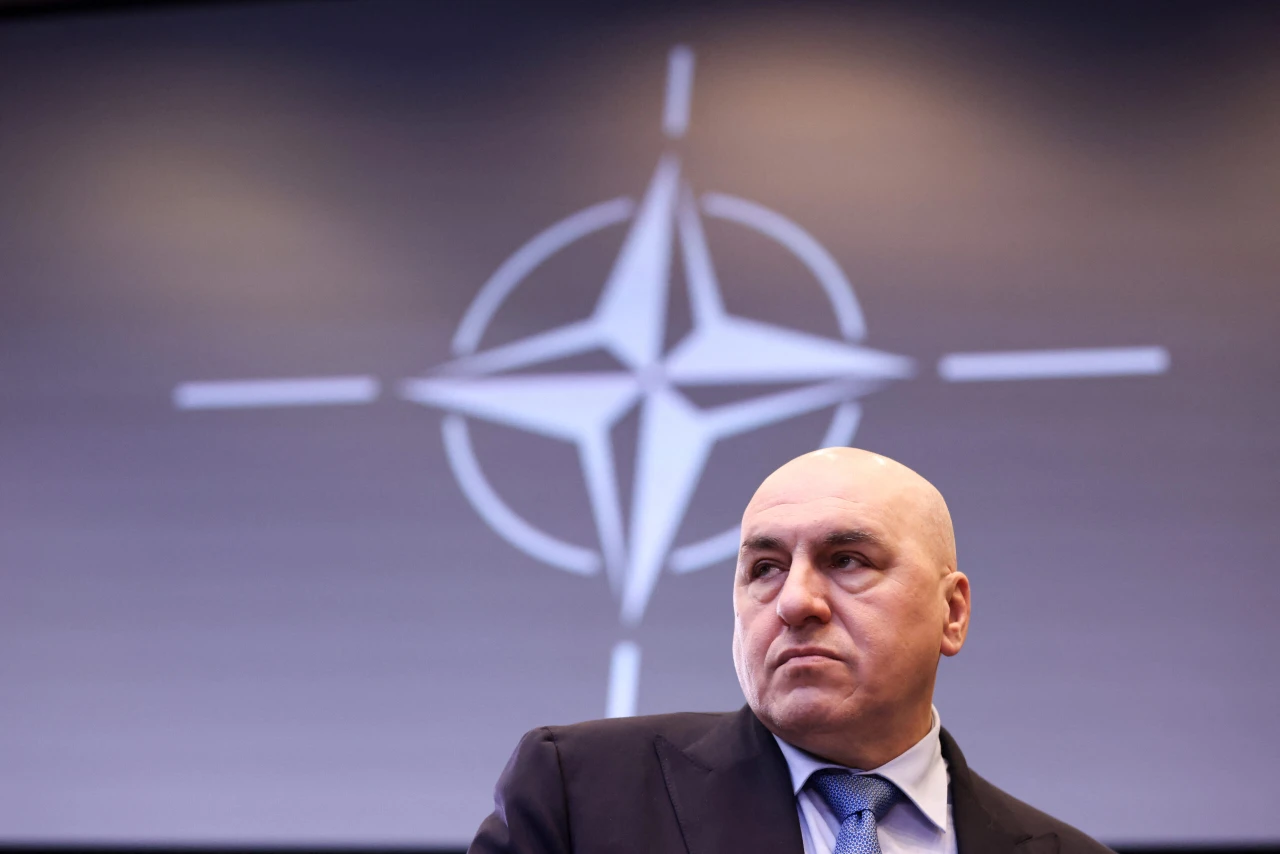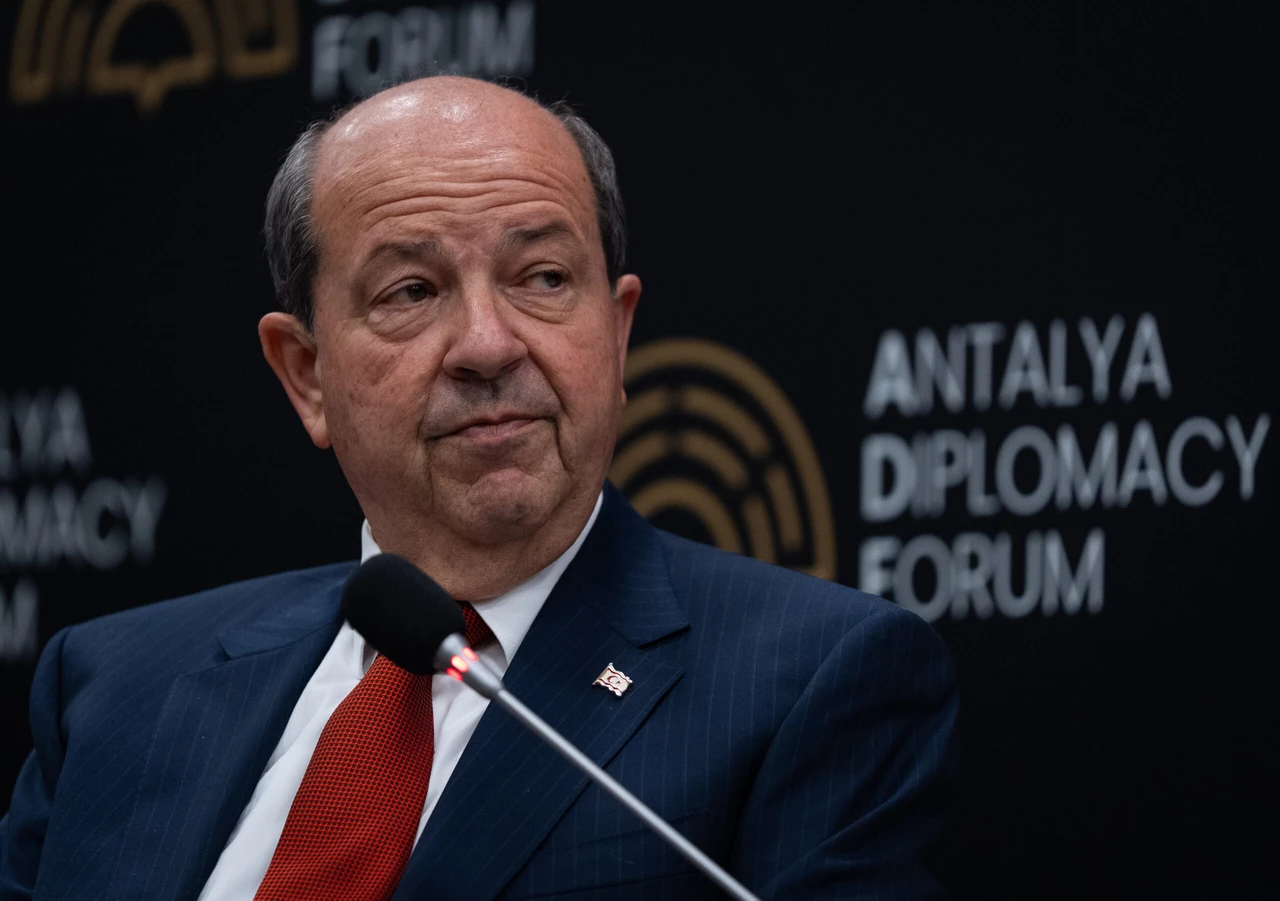‘Türkiye in better position than peers’: Finance Minister Simsek defies against tariff blows
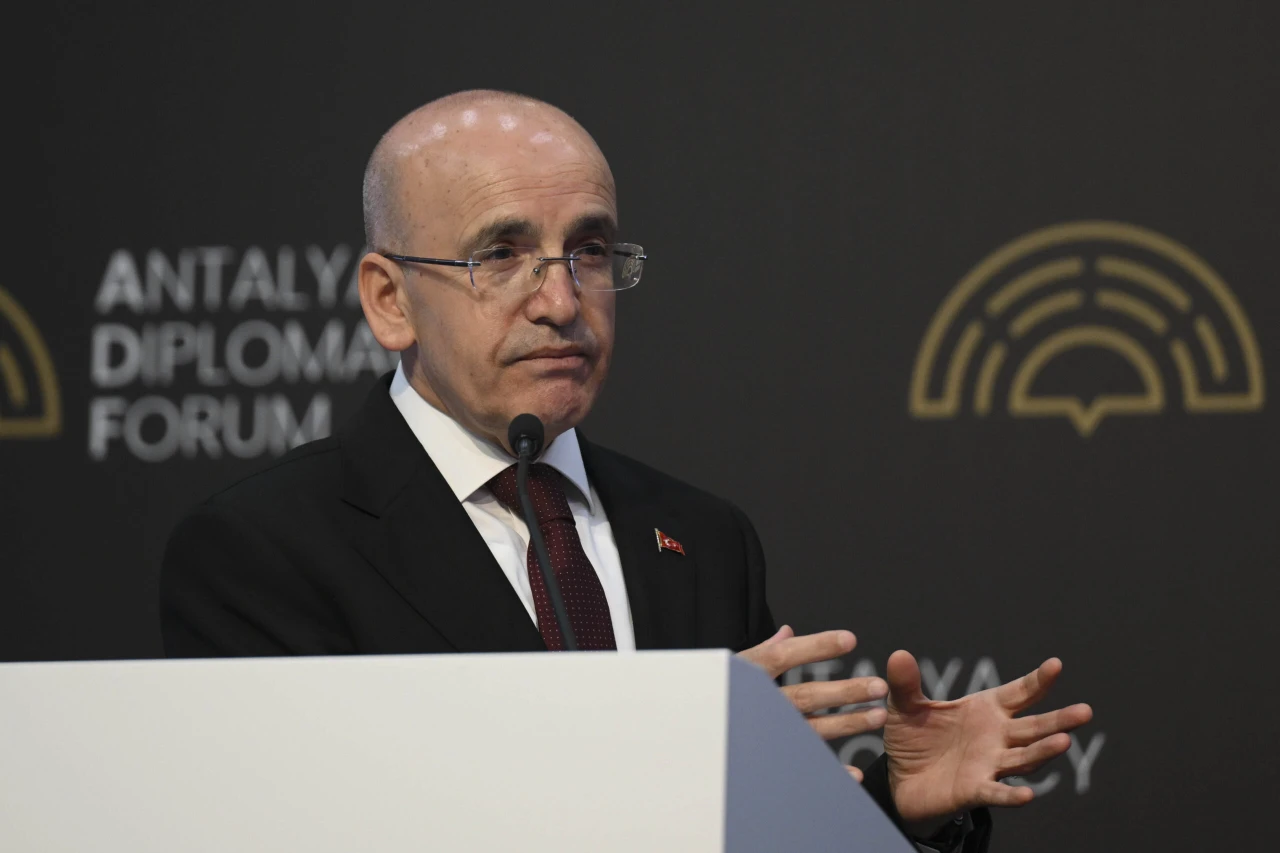 Turkish Minister of Treasury and Finance Mehmet Simsek attends a panel at the 4th Antalya Diplomacy Forum (ADF2025) at NEST Congress Center in Antalya, Türkiye, on April 12, 2025. (AA Photo)
Turkish Minister of Treasury and Finance Mehmet Simsek attends a panel at the 4th Antalya Diplomacy Forum (ADF2025) at NEST Congress Center in Antalya, Türkiye, on April 12, 2025. (AA Photo)
Türkiye is in a stronger position than many of its peers to navigate rising global protectionism amid the Trump tariffs, stressing the government’s belief in open markets and strategic response planning, Türkiye’s Finance Minister Mehmet Simsek remarked.
“Türkiye is in a better position than its peers in adjusting to protectionist trends,” Minister Simsek said.
Speaking at the 4th Antalya Diplomacy Forum during a session titled “Global Challenges and Türkiye’s Outlook” on Saturday, Simsek underlined that “There are no winners in a trade war. All sides lose. That’s why we believe in free trade.” He added that Türkiye would continue to monitor developments, assess all scenarios, and act accordingly.
“Compared to other countries, our growth and welfare rely less on exports. Final consumption and investment are the main drivers of the Turkish economy,” Simsek said, emphasizing that Türkiye has shown relative resilience to rising trade protectionism, which has increased more than eleven-fold since 2009 and has become a major contributor to today’s policy uncertainty.
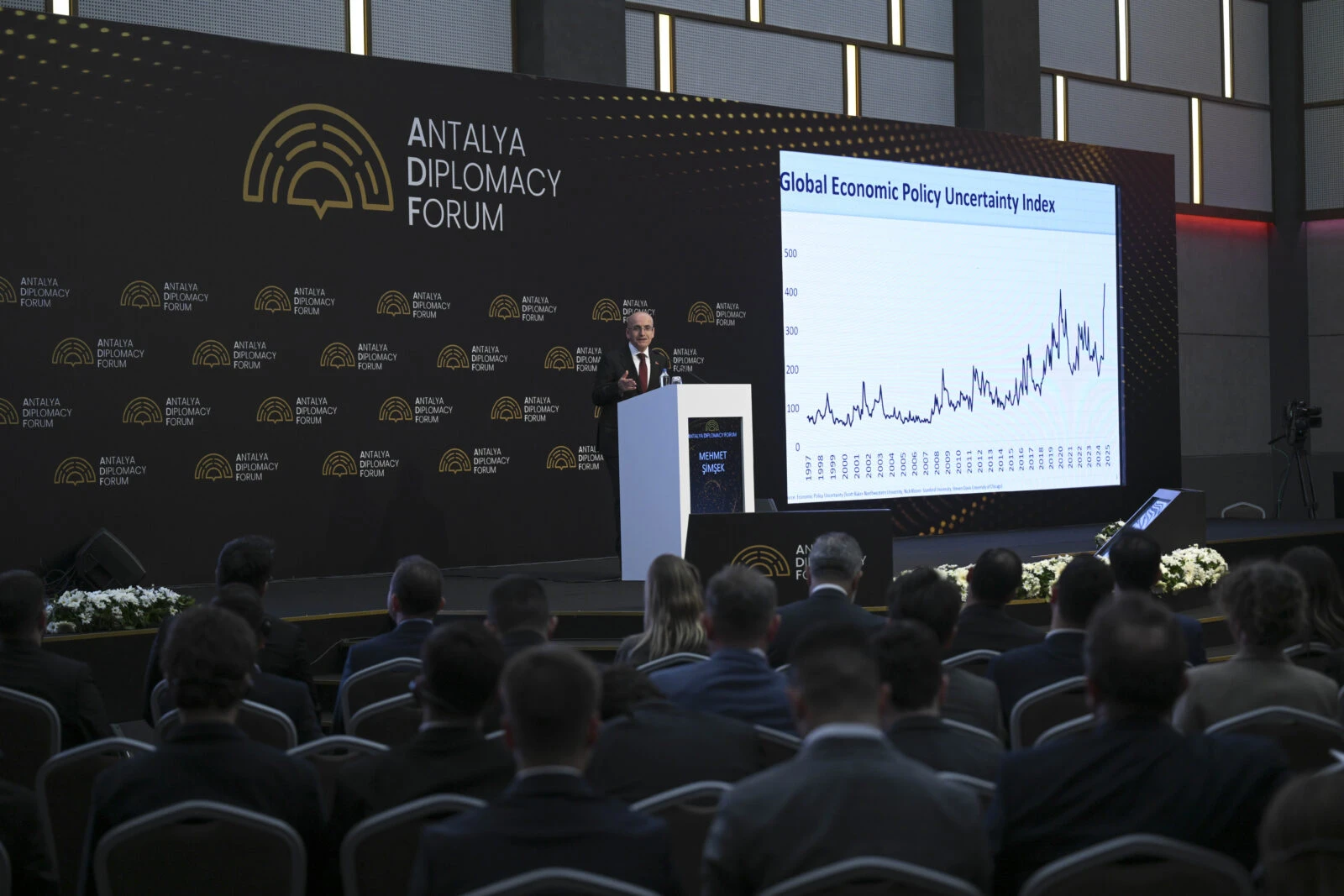
He highlighted Türkiye’s strategic efforts to expand regional connectivity, particularly through investments in the Middle Corridor and the new Development Road initiative. “We continue to invest in connectivity, peace, security, and prosperity in our region. Türkiye will ultimately be the biggest beneficiary,” he said.
The Middle Corridor and the Development Road initiative are major infrastructure and transport projects aimed at enhancing Türkiye’s role as a regional logistics hub.
The Middle Corridor links Asia and Europe through Türkiye via rail and road networks, offering an alternative to northern routes that pass through Russia, while the Development Road, a joint initiative with Iraq, aims to connect the Persian Gulf to Türkiye’s ports via a new trade and transit route. Both projects are designed to boost regional trade, strengthen supply chains, and support economic integration across Eurasia.
Addressing global debt risks, Simsek remarked, “Compared to other countries, our debt-to-gross domestic product (GDP) ratio is lower. This means that once market volatility settles, Türkiye will emerge in a much stronger position thanks to its solid structural foundations.”
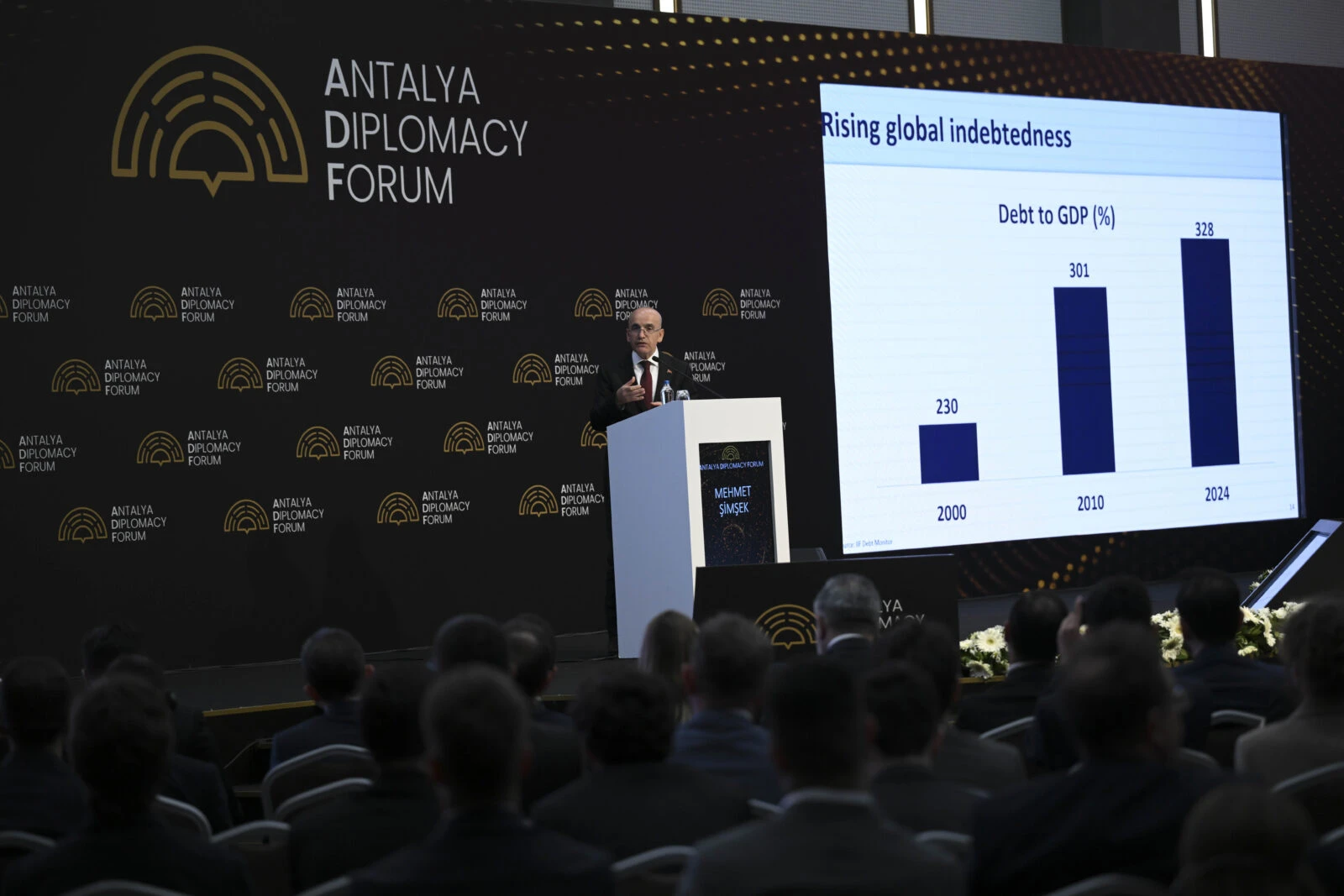
‘Declining energy prices key to inflation slowdown’
He also outlined the country’s technological ambitions, saying that artificial intelligence presents major potential for productivity. “We’ve made critical investments in AI infrastructure. In the next few years, it will be a turning point for Türkiye,” he said. Citing the Global Innovation Index, he added that Türkiye ranks third among upper-middle-income countries, after China and Malaysia.
On inflation, Simsek was clear: “Inflation is falling, it will fall, and it will continue to fall. We have a comprehensive policy set in place, and we are committed to it.” He noted the government’s determination is backed by strong political support and acknowledged that while the Turkish lira’s depreciation may have a limited inflationary effect, declining oil prices are expected to offset that. “We expect the net impact to be disinflationary,” he said.
Energy and gold imports account for a significant share of Türkiye’s total imports. When energy is excluded, the export-to-import coverage ratio rises markedly from 76.3% to 89.1%. Excluding both energy and gold pushes the ratio even higher, to 93.3%, underscoring their considerable impact on the trade balance.
Commenting on the current account, he explained: “If you exclude gold imports, we ran a current account surplus last year while maintaining moderate growth. We aim to place Türkiye on a healthy growth path without a current account deficit. We didn’t get here by chance. This is the result of hard work over recent years.”
Simsek said economic activity is currently moderate due to tighter financial conditions and weak global demand. However, Türkiye’s risk premium has declined more than in other emerging economies since the government’s economic program began.
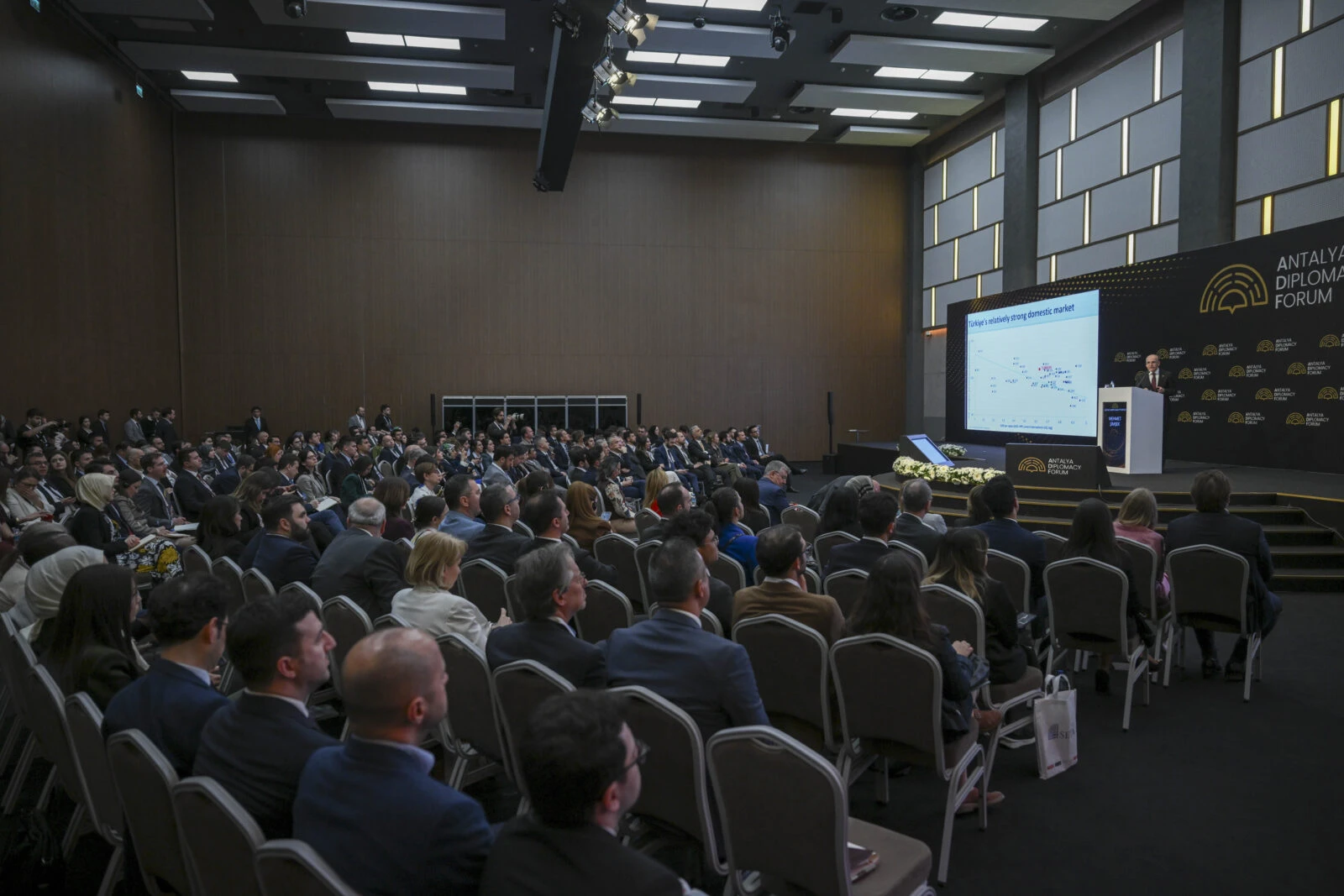
On industrial policy, Simsek explained that Türkiye’s manufacturing sector, although dominated by medium-tech industries, has high value-added relative to per capita income. To boost high-tech output, he said the government launched the HIT-30 program, focusing on more than 30 priority investments in eight sectors through 2030. “We are expanding fiber capacity, investing in 5G, building large-scale data centers, developing a national GPS, and investing in nuclear energy,” he added.
Simsek also emphasized Türkiye’s strong global presence in construction and infrastructure. “Türkiye ranks second after China in global contracting. Once peace is established, we will play a major role in rebuilding regional economies.”
In response to questions, Simsek said Türkiye supports a return to multilateral, rules-based trade systems. “We want to see a return to open, rules-based trade frameworks. That’s the ideal. But it doesn’t seem likely in the near future,” he added.

